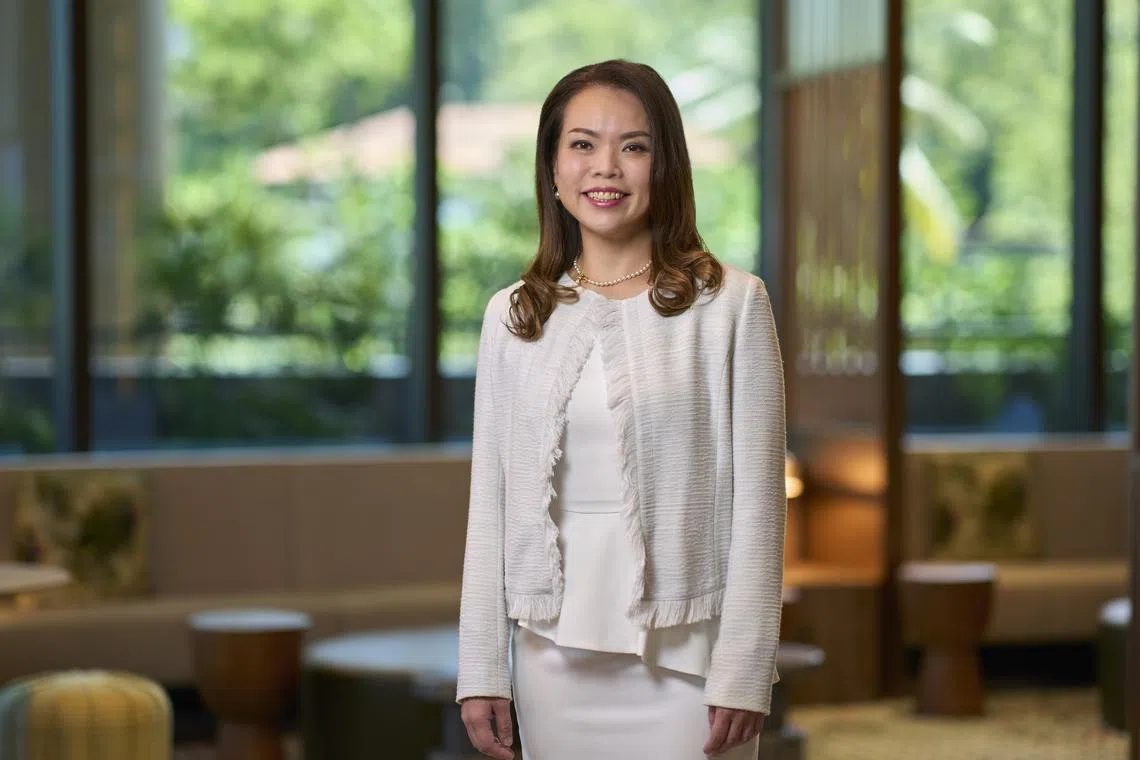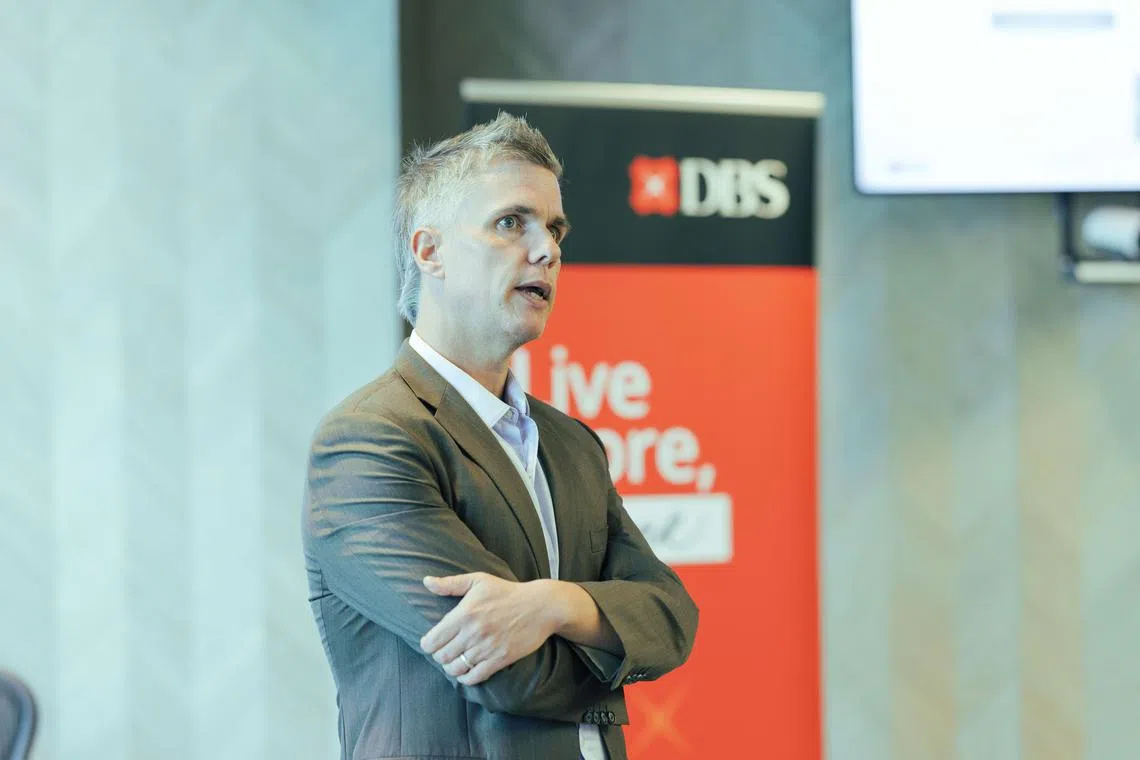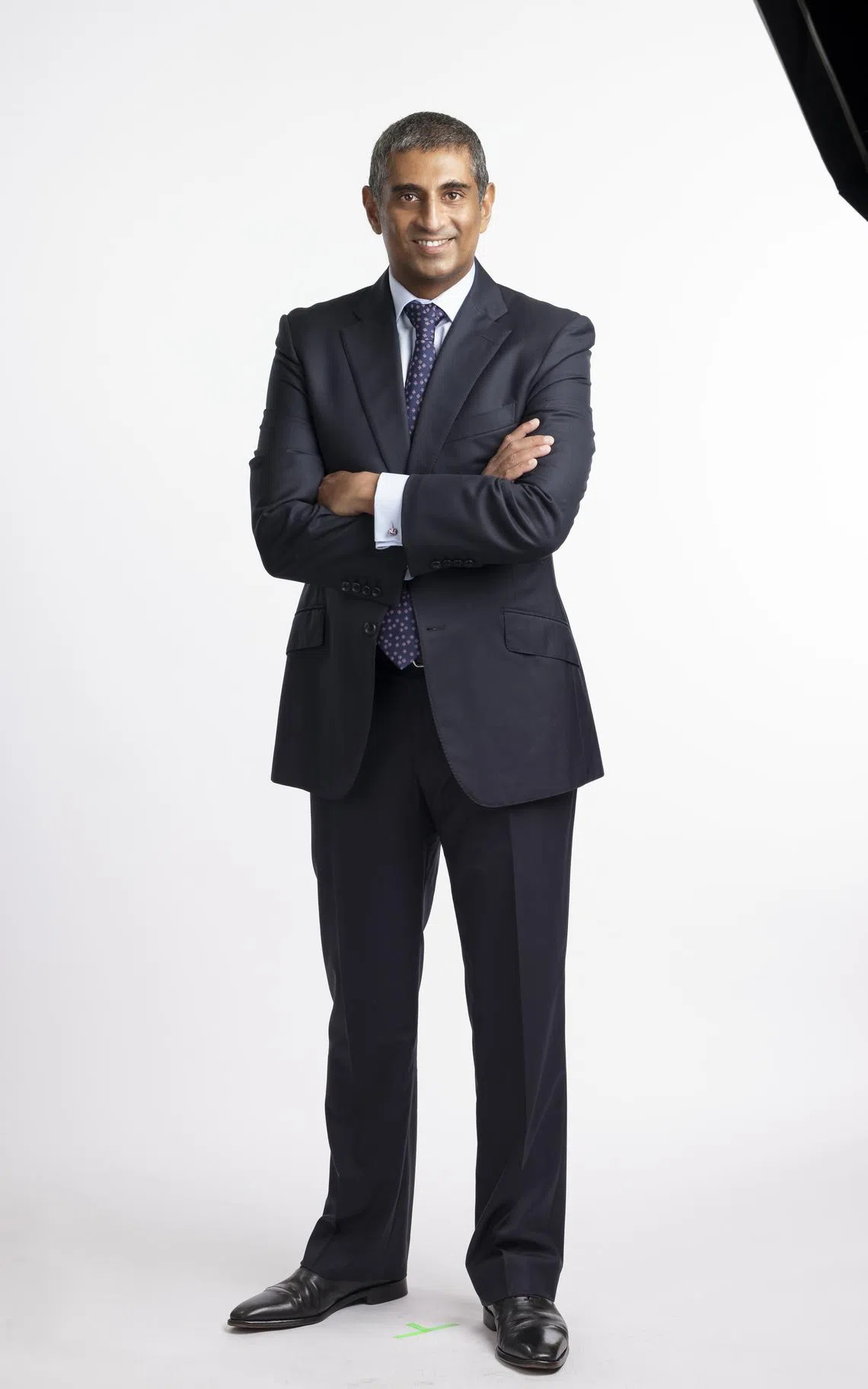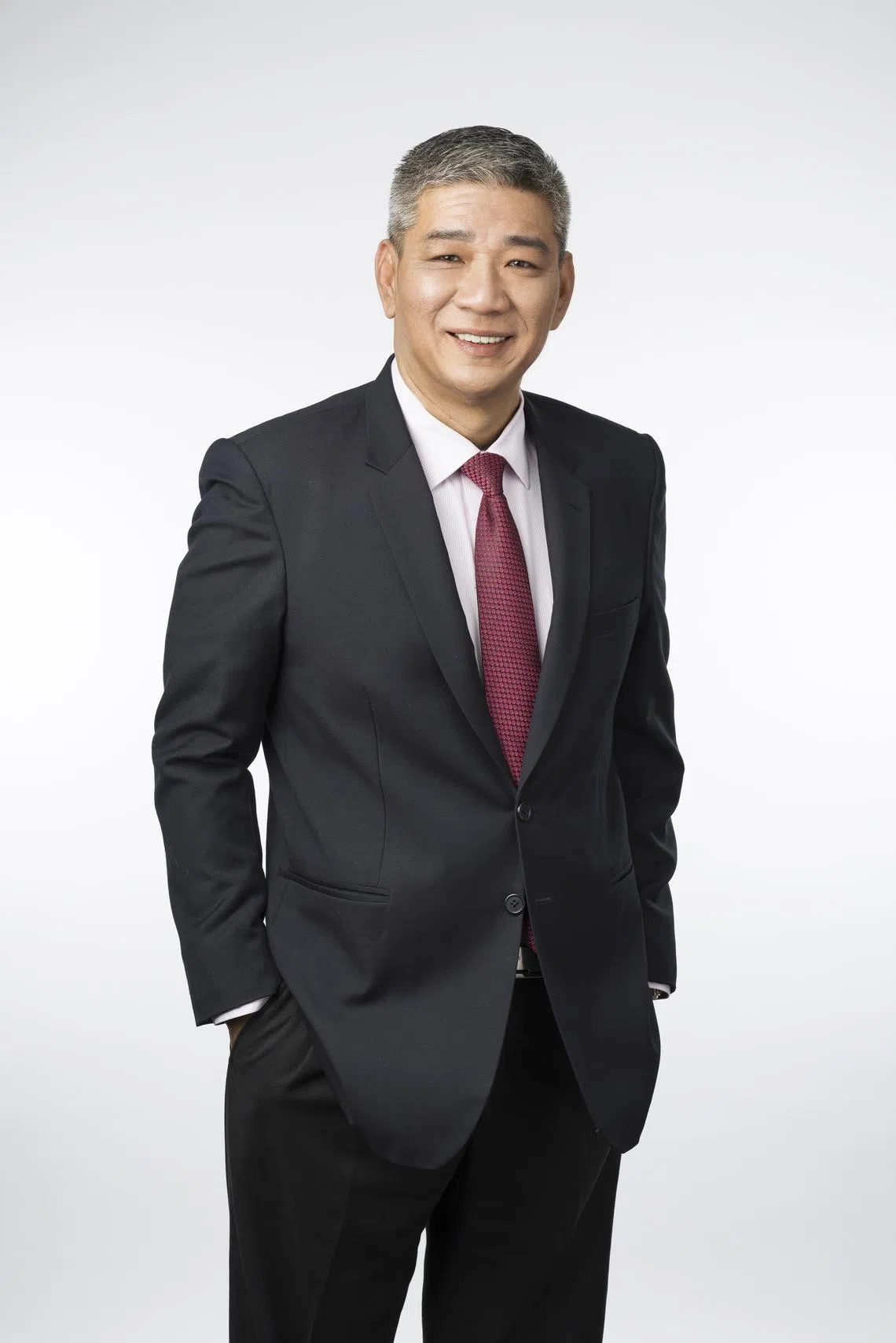Championing sustainability in the corporate world: 4 companies show the way
They have each won the Singapore Corporate Sustainability Award for showing leadership in integrating ESG principles into their operations
IN RECENT years, trends such as decarbonisation, the integration of sustainability into core business strategies, and the increasing focus on transparency in environmental, social and governance (ESG) reporting have become more prevalent, as companies strive to meet the rising expectations of their stakeholders.
This growing focus on sustainability is being recognised by accolades such as the Singapore Corporate Sustainability Award (SCSA), which honours businesses that have demonstrated robust ESG sustainability disclosures and reporting.
The award categories for big-cap, mid-cap and small-cap companies, and for real estate investment trusts (Reits) and business trusts, highlight the sustainability efforts by businesses of different sizes and from a range of industries.
The winners emerged from a rigorous selection process that combined quantitative and qualitative measures.
Four companies that won SCSA honours for demonstrating their market-leading approaches to sustainability, and the impact they are making in their respective industries, are profiled here.

CapitaLand Ascott Trust: Reshaping hospitality with sustainability
While on its sustainability journey, CapitaLand Ascott Trust (Clas) strives to create lasting value for its stakeholders while fostering sustainable growth throughout its global portfolio. Its boards are responsible for overseeing the trust’s sustainability efforts, and factor in ESG elements when determining their strategic direction and priorities.
Navigate Asia in
a new global order
Get the insights delivered to your inbox.
Clas is committed to greening its entire portfolio by 2030. As at May 2024, the trust had hit the 51 per cent mark of its global portfolio by gross floor area; it had surpassed its target to achieve 50 per cent by 2025.
One of Clas’ approaches to sustainability entails leveraging innovative sustainable financing mechanisms. It has secured over S$700 million in sustainable financing.
Serena Teo, chief executive officer of the managers of Clas, said: “Sustainability is at the core of what Clas does. For example, it has dovetailed the cost of capital with its sustainability efforts through a range of sustainable financing tools.”
In August 2024, Clas was the first lodging trust to secure an OCBC 1.5°C loan, a S$165 million sustainability-linked facility aligned with greenhouse-gas emissions reduction targets.
In terms of community engagement, one of Clas’ focus areas is promoting social integration by ensuring that the built environment and public spaces at its properties are accessible. Clas, through its sponsor, The Ascott Limited, has partnered disability and inclusion agency SG Enable to set new standards for accessibility in the hospitality industry. With this tie-up in place, the service team at the Clas-owned Ascott Orchard Singapore underwent disability management training by SG Enable.
Clas practises rigorous ESG reporting practices. It is one of the few Reits in Singapore to publish a sustainability report with performance data that has been evaluated by an independent party, in line with standards in the International Standard on Assurance Engagement 3000. “This enhances our data credibility and gives our stakeholders confidence in our ESG disclosures,” said Teo.
Clas is focused on leveraging innovation to accelerate its sustainability efforts. The trust is piloting emerging technologies, such as solar-powered air conditioning systems, at one of its properties, Ascott Makati, to further reduce its environmental impact.

DBS: Pushing the boundaries of green finance
Helge Muenkel, chief sustainability officer at DBS, said the bank is committed to enabling a “just transition” in the region. The phrase refers to efforts to ensure that the benefits of a transition into a green economy are shared widely, while also supporting those who stand to lose out economically, such as workers, consumers, communities or industries.
The bank does this through a three-pillar approach to sustainability that encompasses responsible banking, responsible business practices and delivering impact beyond banking. “Our sustainability strategy focuses on embedding environmental and social considerations into the fabric of our business,” he said.
The bank’s sustainable financing commitments grew by 37 per cent year on year to S$70 billion as at the end of 2023. To enhance its ability to support clients in their transition to net-zero, it uses digital tools such as generative artificial intelligence for climate and ESG risk assessments.
Muenkel said: “We work with large corporations on climate to deliver on the bold commitments we made in 2022 when we published the Our Path to Net Zero report. We have also significantly dialled up our support to SMEs (small and medium-sized enterprises) as they begin their shift to lower-carbon business models through sustainable finance, advisory and initiatives such as the ESG Ready Programme.”
Creating a low-carbon economy requires collective action across multiple industries, segments and stakeholder groups, he added. “No one entity can do it alone.”
In its drive to advance ecosystem change, for example, the bank is a founding shareholder of Climate Impact X, a carbon market and exchange that seeks to address environmental challenges.
To promote high-quality disclosures, the bank also takes part in more than 10 policy and industry initiatives to come up with more consistent standards for data reporting at the global, regional and national levels. DBS is the only Asia-Pacific representative on the Global Reporting Initiative technical committee, which is developing a pioneering sector-specific guidance for banks.
Beyond environmental initiatives, DBS does its part for social responsibility: It has pledged up to S$1 billion to support vulnerable communities in Singapore and other key markets; its employees will put in 1.5 million volunteer hours over the next decade to this cause.
Muenkel said: “We recognise our larger role in society. As part of our efforts to create impact beyond banking, we leverage our business, resources and talents to be a force for good, such as by banking the under-banked and driving financial inclusion.”
DBS will continue to help its clients advance their sustainability agendas, particularly in areas such as nature conservation, renewable energy and sustainable supply chains.

StarHub: Powering the digital age with purpose
StarHub, a leading telecommunications and digital services provider in Singapore, has integrated sustainability principles into its business strategy in a way that reflects its commitment to environmental stewardship, social responsibility and strong governance. “Integrating ESG principles isn’t just a business strategy for us at StarHub – it is part of who we are and what we stand for,” said its chief executive, Nikhil Eapen.
The company is expressing its commitment to decarbonisation with targets to reduce greenhouse gas emissions, and to be net-zero across its value chain by 2050. This commitment has driven the firm’s strategic decisions, such as the shift to renewable energy sources and the integration of sustainability-linked key performance indicators into the performance share plan for leadership and management staff.
On the social front, StarHub focuses on data protection, cybersecurity, online safety, and fostering a diverse and inclusive workplace. Amid rising cyber threats globally, the company has re-certified its Data Protection Trustmark – which recognises organisations for their robust data-protection policies and practices. It has also launched various cybersecurity services to protect its customers.
Eapen said: “We work very closely with business partners and the relevant authorities to enhance public education on scam prevention.” Most recently, it launched a scam masterclass to equip the public with the knowledge to recognise and combat cyber threats.
In terms of community engagement, StarHub has contributed to bridging the digital divide. For instance, it refurbished and donated laptops and monitors to charitable organisation Shine Children and Youth Services, and provided broadband plans to people with attention deficit hyperactivity disorder.
Eapen noted: “These initiatives highlight our belief that community engagement is crucial for long-term business success, and are a testament to our dedication to social responsibility.”
StarHub has mechanisms in place to ensure the accuracy of its ESG disclosures. For instance, its sustainability reporting practices were evaluated by PwC Singapore in 2023. It has also engaged external assurance providers to make independent assessments of selected ESG metrics in the interest of credibility and for a fair view of selected sustainability information.
Eapen believes that the company is well-positioned to capitalise on the opportunities presented by digital transformation and sustainable technology. “In all of this, our goal remains the same: to create a future where technology and sustainability go hand in hand, delivering value for our customers, our shareholders, and our planet.”

Vicom: Driving innovation in sustainability
Vehicle inspection and testing company Vicom has made sustainability a core component of its business strategy. To help guide its ESG efforts and ensure that they are aligned with the organisation’s goals, the company set up a sustainability committee in 2021.
Sustainability targets are now included in the performance appraisals of members of senior management, including their annual remuneration and long-term incentives.
Vicom has worked at minimising its environmental footprint in recent years, such as by installing solar panels in six out of its eight premises. This transition to solar energy is expected to reduce “brown energy” consumption by around 10 per cent. The company has also installed electric vehicle (EV) chargers on its premises and is actively converting its fleet to EVs; its goal is to be 50 per cent electrified by 2030.
“Vicom is committed to sustainable profitability while minimising its environmental footprint,” says its chief executive officer, Sim Wing Yew.
Beyond its green efforts, Vicom aims to make a positive impact on its community. Through initiatives like the Care & Share programme, its employees put in nearly 400 volunteer hours in 2023 in support of HCA Hospice Care. The company also prioritises employee development, and has expanded its training programmes to include personal development courses.
In governance, Vicom aligns its annual sustainability report with the standards proscribed by the Global Reporting Initiative and Singapore Exchange. The company has also put in place a dedicated data-collection platform that gives its senior management team real-time insights into its ESG performance.
Vicom’s parent company, ComfortDelGro, conducts an internal audit annually to verify the accuracy and the robustness of its disclosures and processes.
Sim said: “Looking ahead, we plan to continue enhancing our sustainability reporting practices, and will explore opportunities to adopt additional standards or frameworks to stay abreast of emerging disclosure requirements.”
Decoding Asia newsletter: your guide to navigating Asia in a new global order. Sign up here to get Decoding Asia newsletter. Delivered to your inbox. Free.
Copyright SPH Media. All rights reserved.



